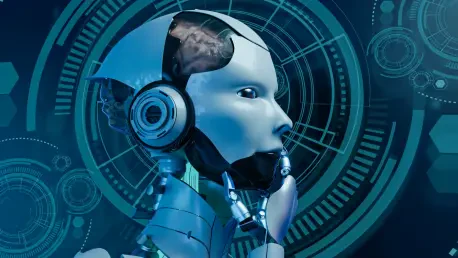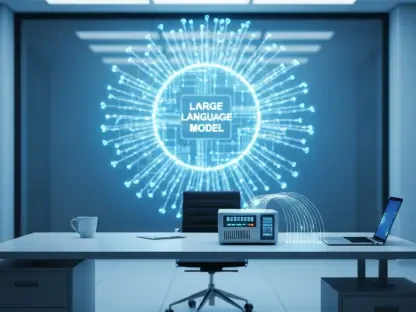Artificial intelligence (AI) is revolutionizing various sectors, and education is no exception. As AI technology continues to evolve, educators are exploring its potential to enhance teaching methodologies and curriculum design. A key aspect of this transformation involves understanding and leveraging cognitive differences among individuals. This understanding can catalyze significant advantages in tailoring education to meet diverse needs, thus providing a more inclusive and effective learning environment.
The Intersection of AI and Educational Methodologies
Reflection on Pedagogical Approaches
Dr. Colin Webber emphasizes that AI compels teachers to reconsider their teaching strategies. With AI’s increasing role in education, educators are encouraged to reflect on their pedagogical approaches more deeply. By contemplating collaboration and communication, educators can better recognize individual skills and tailor tasks accordingly. Reflecting on these methods is crucial to acknowledging the unique contributions of human partners, extending collaborative efforts, and evaluating the quality of outcomes produced.
This reflection process challenges educators to identify the strengths and weaknesses of their students, adjusting their techniques to maximize learning potential. The integration of AI into classrooms forces an introspective look at how subjects are taught, promoting a shift from traditional methods to more adaptive and personalized strategies. This could mean using AI to identify patterns in student performance or to provide targeted feedback that addresses specific learning gaps.
The Concept of Connoisseurship
Webber introduces ‘connoisseurship’ as a pivotal concept to distinguish high-quality work from mediocre efforts across various fields. This idea is invaluable in assessing student performance as it emphasizes the critical evaluation of work standards. Connoisseurship encourages educators to develop a keen eye for quality, which is essential for enhancing critical thinking skills among students.
In practical terms, connoisseurship involves recognizing the nuances of different assignments and projects, whether in recording studio techniques or analytical essays. Educators striving for connoisseurship can better guide students toward excellence by setting and maintaining high expectations. In a landscape where AI can generate vast amounts of information and solutions, the ability to discern between good and superior work becomes even more critical.
Practical Implications and Challenges
Varied Student Recording Approaches
Differences in student recording techniques, such as jazz and heavy metal, highlight the need for educators to apply diverse assessment methods with consistent standards. Each genre requires distinct skills and approaches, which necessitates flexible yet fair evaluation methods. AI technology can play a significant role in achieving this balance by offering tools that analyze and assess different aspects of student work with precision.
For example, AI can be used to evaluate the technical quality of recordings, the creativity of compositions, and adherence to genre-specific conventions. These tools can provide objective feedback, helping students understand their strengths and areas for improvement. By leveraging AI, educators can ensure that their assessments are comprehensive and nuanced, reflecting the diverse range of student abilities and preferences.
Preparing for AI Literacy
Current efforts to prepare students for AI literacy are often insufficient. As AI continues to permeate various aspects of life, there is an urgent need for schools to adopt a broader perspective on AI technologies. This involves integrating comprehensive AI education into their curricula to ensure that students are not only familiar with AI tools but also understand their ethical implications and potential limitations.
Schools must focus on teaching students how to use AI responsibly and effectively. This includes understanding how AI works, recognizing its biases, and being aware of its potential for misuse. By fostering a deeper understanding of AI, educators can empower students to leverage these technologies in meaningful ways, preparing them for a future where AI plays a central role in various industries.
AI and Cognitive Diversity
Parallels with Neurodiversity
Criticisms of AI often mirror those faced by neurodiverse individuals. Webber notes that reactions to AI can provide valuable insights into how people perceive and interact with cognitive differences. By valuing diverse cognitive perspectives, educators can better understand and interact with AI technologies. This approach not only supports neurodiverse individuals in the classroom but also enhances the overall learning experience by fostering an inclusive and adaptive educational environment.
Recognizing and respecting different ways of thinking can lead to more innovative and effective teaching methods. For instance, educators might develop strategies that cater to a wide range of learning styles, ensuring that all students have the opportunity to succeed. By embracing cognitive diversity, schools can create a more dynamic and responsive educational system that is better equipped to meet the needs of all students.
Enhancing Interpersonal Skills
AI has the potential to improve interpersonal skills by necessitating collaboration with individuals who possess different areas of expertise. This collaborative approach is essential for effective education and leadership. In a world where AI is increasingly integrated into various sectors, the ability to work well with others becomes even more crucial. AI can facilitate this by encouraging students and educators to engage in teamwork, share knowledge, and solve problems collectively.
For example, AI tools can assist in collaboration by providing platforms for communication and project management, making it easier for students to work together on complex assignments. These tools can help identify individual strengths within a group, ensuring that each member contributes effectively. By fostering collaboration and teamwork, AI can help students develop the interpersonal skills necessary for success in their future careers.
Leadership and Misconceptions
The Role of Dedicated Leaders
Effective integration of AI in education requires leaders who comprehend AI’s implications within their specific contexts. Principals and business managers play a critical role in utilizing AI in classrooms while addressing security and data privacy concerns. Leaders must be knowledgeable about AI technologies and understand how to implement them in ways that align with their educational goals and values.
These leaders are responsible for creating policies and guidelines that ensure the ethical use of AI, protecting student data, and fostering an environment where AI can enhance learning. They must also be proactive in seeking out professional development opportunities for themselves and their staff to stay informed about the latest advancements in AI and their potential applications in education.
Addressing Misinformation
Artificial intelligence (AI) is bringing about significant changes across many fields, and the education sector is certainly feeling its impact. As AI technology advances, educators are busy figuring out how to use its potential to improve teaching methods and curriculum planning. An important part of this transformation is understanding and utilizing cognitive differences among students. By acknowledging these differences, educators can create more personalized learning experiences. This personalization can lead to substantial advantages, helping to tailor education to meet a wide array of needs. As a result, AI is not just enhancing the educational process but also making learning environments more inclusive and efficient. Embracing these technological advancements allows educators to better support their students, ensuring that both unique abilities and challenges are addressed. This commitment to adaptive education through AI can fundamentally reshape the way students learn, helping them achieve their full potential in a supportive and comprehensive manner.









